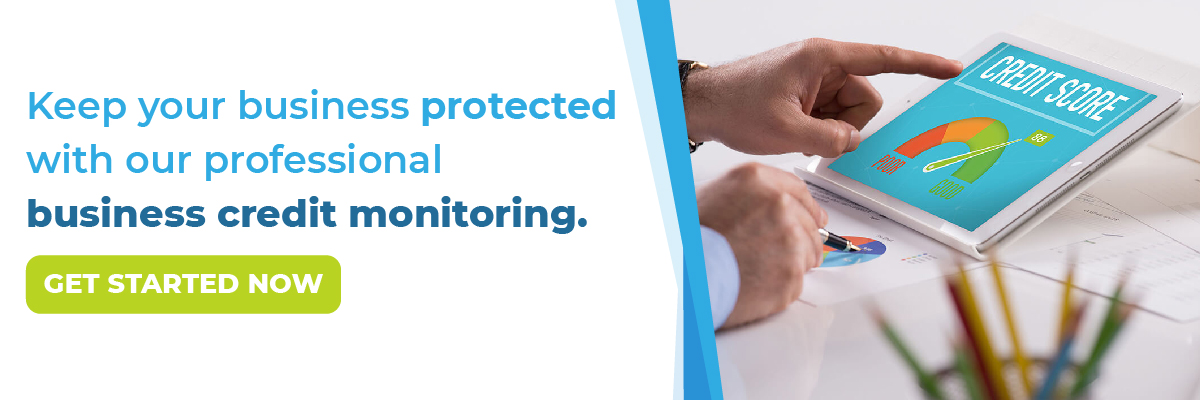- Connect With Us!
- (877) 600-2487
- info@creditsuite.com
46 Crowdfunding Resources Available to Help You Run Your Campaign
Published By Faith Stewart at April 15th, 2020
 Are you looking for crowdfunding resources? You’ve come to the right place. There are videos, books, articles, blogs, and even special tools to help you run the most successful campaign possible.
Are you looking for crowdfunding resources? You’ve come to the right place. There are videos, books, articles, blogs, and even special tools to help you run the most successful campaign possible.
Of course, some of the information these resources offer will not be as useful to you as others. It all depends on your unique needs and situation. Do take the time to browse them all, even those that are written specifically for a platform you do not intend to use. You may be surprised at what you can learn and what advice can cross over.
Be aware too, that each platform has its own set of rules. Do not neglect to read the regulations and FAQs for whichever platform you choose to go forward with.
Keep your business protected with our professional business credit monitoring.
Try These 46 Crowdfunding Resources to Help You Run a Successful Campaign
Regardless of how many crowdfunding resources you find or how successful your campaign is, you will still need to build fundability for your business. Crowdfunding won’t work forever, and you need to be sure you have every funding option possible available to you. The best way to do that is to ensure your business is as fundable as possible.
In truth, fundability is much more important than building the perfect crowdfunding campaign. That doesn’t mean you should give up on crowdfunding, but you definitely can’t rely on it. It may work, but it may not. So, building fundability will ensure you have access to the funding you need throughout the life of your business.
What is Crowdfunding?
Crowdfunding sites allow you to inform thousands of micro investors about your business or business idea. Anyone who wants to can invest as much or as little as they want.
Investors pledge a broad range of amounts depending on the campaign and the platform in use. They may give $50, they may give $150, or they may give over $500. Pledges can even go as low as $5.
Though not always necessary, most offer rewards to investors for their giving. Typically, this comes in the form of the product the business will be selling. Different levels of giving result in different rewards. For example, a $50 gift may get you one incentive, and a $100 gift will get you an upgraded version of that incentive, or something different all together.
Where Do You Get Started with Crowdfunding?
There are many crowdfunding sites, but the most popular are Kickstarter and Indiegogo. Many crowdfunding resources are geared toward aiding in success on these two platforms. Much of the advice these resources offer is useful on any crowdfunding campaign, but some is specifically useful on one of these two.
The platforms are similar, but there are some very large differences. The most obvious is when you actually get the funds you raise.
For example, with Kickstarter you have to reach your preset goal before you can receive the funds. If you set a goal to raise $12,000, investments have to reach that amount before you get your hands on any of the money.
Indiegogo on the other hand lets you choose if you want to receive funds as they come in or wait until you reach your goal. In addition, they have the option for InDemand, which lets you continue to raise funds after your initial campaign is over. There is no need to start a new campaign.
Indiegogo also has a flexible funding option for those who may need it.
To make the choice for yourself, you need to figure out who your audience is, and which platform will best reach them.
The internet is full of advice and tools to help you fund a fabulous crowdfunding campaign. We’ve gathered some of them here in one place so you can get the best start possible.
Keep your business protected with our professional business credit monitoring.
Platform Specific Crowdfunding Resources
Like I said, you’ll find many crowdfunding resources are geared toward help on a specific platform. Remember though, don’t underestimate a resource that is not geared toward your platform. Certain aspects can be helpful regardless of the platform you use.
Kickstarter
Here are some great crowdfunding resources to help with success on Kickstarter.
-
Hacking Kickstarter by Tim Ferriss
-
The Language that Gets People to Give: Phrases that Predict Success on Kickstarter
-
Stonemaier Games — Kickstarter Lessons
-
Kickstarter Stats You Can Use
-
Also Kickstarter Step-By-Step: Making $15,000 in 28 hours
-
Kickstarter Forum
-
Better tools for project creators
-
Kickstarter Calculator
-
Kickstarter Creator Handbook
-
The Five Dollar Movie
-
Potato Salad: By the Numbers
-
Kickstarter’s 2-billionth dollar statistics
-
Kickstarter Stats (official)
-
What Successful Kickstarter Campaigns Have In Common
-
How Much Is A Tweet Worth for a Kickstarter Campaign?
-
How our $500K Kickstarter Crashed And Burned
-
Why 84% of Kickstarter’s top projects shipped late
-
The Kickstarter Fulfillment Report
-
Comix Tribe Kickstarter Resources
-
Kickstartup
- Kicktraq
- Kickstarter Budget Tool
Indiegogo
Here are some crowdfunding resources geared toward Indiegogo users.
Other Specific
These crowdfunding resources are geared toward specific platforms other than Kickstarter and Indiegogo.
-
BackersHub Facebook Group
-
Reddit Crowdfunding Thread
-
RocketHub Success School
-
Pozible Handbook
-
FirstGiving Handbook
-
PledgeMe Project Guide
Non-Platform Specific Crowdfunding Resources
These resources are not directed toward success on any specific crowdfunding platform. Rather they can offer inspiration and direction on techniques and circumstances that should work regardless of the platform you choose.
Videos
These video crowdfunding resources may be useful.
-
Emily Best on Why Filmmakers Make The Worst Crowdfunding Videos
-
Taking the shame out of self-promotion
-
What getting rejected says about you
Other Crowdfunding Resources
The following crowdfunding resources do not really fit into another category so we are calling them miscellaneous.
-
Show Me the Money! An Analysis of Project Updates During Crowdfunding Campaigns
-
I crowdfunded my PhD research
-
The Two-Step Method for Easy Press Coverage
-
The Era Of The Crowdfunded Business
-
Pay Caesar His Due
-
Hardware is hard
-
Crowdfunding Campaign Tools
-
5 Effective and Free Publicity Tools to Boost Your Crowdfunding Campaign
-
The Secret To Getting Exposure From Influencers (video)
-
6 Research-backed ways to get more followers on Twitter, Facebook, G+ and more
-
Crowdfunding Forum
Don’t Put all your Eggs in the Crowdfunding Basket
Crowdfunding is a great option, but the cold hard fact is that it rarely works. There are far more campaigns that fail than see success. Even those that are successful often end up not raising enough funds. Then, entrepreneurs end up needing to seek out funds from other sources.
These other sources may include loans, invoice financing, and lines of credit. Of course, grants are an option too. However, they are few and far between. Furthermore, competition for grants is fierce. That leaves the financing options, and to be eligible for those, your business has to be fundable.
Fundability if the ability of your business to get funding. It is affected by many things. Business credit is a huge piece, as is personal credit. However, it is impossible to have fundability regardless of your credit, if your business is not properly set up to be fundable.
Keep your business protected with our professional business credit monitoring.
How to Set Up Your Business to Be Fundable
LIke I said, setting up your business to be fundable is not the only piece of the fundability puzzle. However, it is the first piece that has to be placed and the biggest piece missed by most business owners. Here is where you start.
Contact Information
The first step in setting up a business to be fundable is to ensure it has its own phone number, fax number, and address. You can still run your business from your home or on your computer if that is what you want.
In fact, you can get a business phone number and fax number that will function over the internet rather than phone lines. Also, the phone number will forward to any phone you want it to so you can simply use your personal cell phone or landline if you want.
In addition, you can use a virtual office for a business address. This is a business that offers a physical address for a fee. Sometimes they even offer mail service and live receptionist services. Even better, there are some that offer meeting spaces for those times you may need to meet a client or customer in person.
EIN
The next thing you need to do is get an EIN for your business. This is an identifying number for your business that works in a way similar to how your SSN works for you personally. You can get one for free from the IRS.
Incorporate
Incorporating your business as an LLC, S-corp, or corporation is necessary to fundability. This helps show your business is legitimate, and it gives some protection from liability.
It does not matter which option you choose when it comes to fundability. It does matter for your budget and needs for liability protection. The best bet is to talk to your attorney or a tax professional. Keep in mind, when you incorporate, you become a new entity. Basically, you have to start over. You’ll also lose any positive payment history you may have accumulated.
As a result, you have to incorporate as soon as possible. Time in business is important to fundability as well. The longer you have been in business the more fundable you appear to be. That starts on the date of incorporation, regardless of when you actually started doing business.
Business Bank Account
You need a separate, dedicated business bank account. Here’s why. First, it will help you keep business finances separate from personal ones. This is important for tax purposes.
But wait, there’s more. You can’t get some types of funding without a business bank account. Many lenders and credit cards want to see a minimum average balance. In addition, you cannot get a merchant account without a business account at a bank. That means you can’t take credit card payments. Generally, consumers spend more when they can pay by credit card.
Licenses
For a business to be legitimate, it has to have all of the licenses it needs to run. Conversely, if it doesn’t, it will not appear to be a legitimate business. Do the research you need to do to make sure you have all of the licenses you need to legitimately run your business at the federal, state, and local levels.
Website
How can a business website affect your ability to get funding? In today’s world, you do not exist if you do not have a website. However, a poorly put together website can be even worse. It is the first impression you make on most. If it appears to be unprofessional, it will not look good for you with consumers or potential lenders.
Even more to the point, if potential investors from a crowdfunding site check out your website and it stinks, they will not donate.
Do what you have to to make sure your website is professionally designed and works well. Also, don’t use a free hosting service. Don’t forget, your business needs a dedicated business email address. Make sure it has the same URL as your Website. Don’t use a free service such as Yahoo or Gmail.
Get all Your Proverbial Ducks in a Row
What’s the take away? First, crowdfunding is a legitimate option, and these 46 crowdfunding resources can help you on your road to success. Next, you have to have a backup plan. You have to know you can get funding if crowdfunding doesn’t work out. Fundability is your backup plan. There are a lot of things that affect fundability, but none of it matters if your business isn’t set up to be fundable in the first place. There are several things you have to do to set up your business to build fundability.
If your business is fundable, you will be able to access pretty much any funding you need now and into the future. You won’t have to worry about the ability to qualify for a loan, line of credit, or any other type of financing. This will help ensure your business can run and grow for as long as you want.

 " class="attachment-blog-single size-blog-single wp-post-image" alt="Get Business Credit Cards for New Businesses Credit Suite-Business Line of Credit Decoded" title="Get Business Credit Cards for New Businesses">>
" class="attachment-blog-single size-blog-single wp-post-image" alt="Get Business Credit Cards for New Businesses Credit Suite-Business Line of Credit Decoded" title="Get Business Credit Cards for New Businesses">>